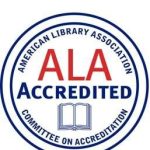The UBC School of Information is an internationally ranked, multi-disciplinary school for graduate studies in library and information studies.
In our American Library Association (ALA) accredited Master of Library and Information Studies (MLIS) program, you have a range of career pathways, including data services, information interaction and design, librarianship and cultural heritage, which you can take.
Mission statement
The MLIS program prepares professionals to exercise creativity, integrity and leadership in designing, implementing and promoting programs and systems for the creation, organization, management, preservation and effective use of information and collections. Our graduates go on to careers as librarians, information managers, researchers, analysts, interaction designers, web content specialists, and more.
Program highlights
- Faculty engaged in various research projects, including community-engaged learning, knowledge organization, data visualization, social computing and human-computer interaction
- Strong connections to local and provincial library communities
- Specialization opportunity in First Nations/Indigenous knowledge stewardship
- Hands-on experience opportunities, including professional experience, project-based work, and paid co-op work terms
- State-of-the-art learning and research facilities at a world-class university
Data services; librarianship; community and culture; information interaction and design; information sources and services; digital resource management; information analysis and management; services and management of information organizations; youth services and literature.
 The MLIS program is accredited by the American Library Association (ALA) and was awarded Continuing Accreditation Status (review in 2023).
The MLIS program is accredited by the American Library Association (ALA) and was awarded Continuing Accreditation Status (review in 2023).
The ALA accredits master's programs in the United States, Canada and Puerto Rico, and many employers in North America require a degree from an ALA-accredited school for professional positions.
Degree requirements
Students in the MLIS program can tailor their program to suit their specific needs. Every MLIS student will be assigned a faculty advisor who can assist students with selecting elective courses and questions regarding the curriculum.
Please note that there are MLIS electives that do not require core LIBR courses (i.e., LIBR_V 506, 507, 509) as pre- or corequisites and can be taken before or alongside core courses during the first two terms of the program. However, other MLIS electives require core LIBR courses as prerequisite or corequisite. Accordingly, before you enroll in such courses, you must ensure that you have completed the prerequisite core course(s) and/or registered at the same time in the corequisite core course(s).
With a few exceptions, once a student completes the core LIBR courses, they will have met the pre- and corequisite requirements for the non-core LIBR courses. All established pre- or corequisites for LIBR courses can be found on the individual course pages and will be strictly adhered to except in extraordinary circumstances. In such cases, the student must first discuss the rationale for an exemption with their Faculty Advisor and then submit a written request for an exemption to the iSchool Graduate Advisor. The decision on whether or not to grant such an exemption will be made by the iSchool Graduate Advisor (in consultation with other faculty as needed). Students can access the full list of courses available for MLIS students on the courses page.
MLIS students can take up to 12 credits (4 courses) other than those designated "LIBR" at UBC. Commonly these courses, external to the program, are graduate courses (500 course code level) offered by the iSchool (e.g., ARST) or other UBC units (e.g., ANTH, EDUC, ENGL, etc.). However, UBC graduate students may take up to 6 credits (2 courses) of undergraduate courses at the upper level (300- and 400-course code levels) offered by the iSchool (e.g., INFO) or other UBC units. Students do not need permission from the iSchool to enroll in any of these courses but are responsible for ensuring they meet the prerequisites or have instructor permission. We recommend you to consult with your faculty advisors on the suitability of course choice, if you are interested in taking courses outside of your program.
Part-time study
Although completing the MLIS core courses on a full-time schedule is highly recommended, pursuing the MLIS degree part-time is possible. Core courses are pre- or co-requisites for several LIBR electives, and completing the core in the first two terms provides students with the most options in subsequent terms.
We advise all students (full-time and part-time) to complete all their LIBR core courses within 12 months of their start date.
Learning Outcomes
We have set out the educational commitments of the MLIS program in the statement on learning outcomes. The MLIS Student Learning Outcomes provide a framework for the ongoing assessment of the Master of Library and Information Studies program through direct and indirect measures of student achievement. The assessment results are published annually on the program assessment page of the website.
Graduates are able to:
1. Draw upon knowledge of: professional ethics, the rights of Indigenous peoples, and principles of equity, diversity and inclusion to guide their practices;
2. Identify information needs and respond through the design and provision of information products and services;
3. Organize and manage information to facilitate access, reflection, and use in a range of contexts;
4. Employ information systems and current technologies to address real-world situations, informed by social and cultural perspectives;
5. Reflect in an informed and critical manner on information infrastructures and practices, acknowledging the role of power and privilege, the ongoing influence of colonization, and the value of diverse worldviews;
6. Communicate clearly using a range of media suited to diverse audiences and goals;
7. Demonstrate effective collaboration, decision-making and leadership in team settings;
8. Design and conduct research and evaluation studies to inform evidence-based decision-making;
9. Develop respectful reciprocal relationships with professional and community groups;
10. Contribute to the advancement of the field through informed practice, service and/or research.
Version 3 (approved by Faculty November 8, 2022; in effect from July 1, 2023)
